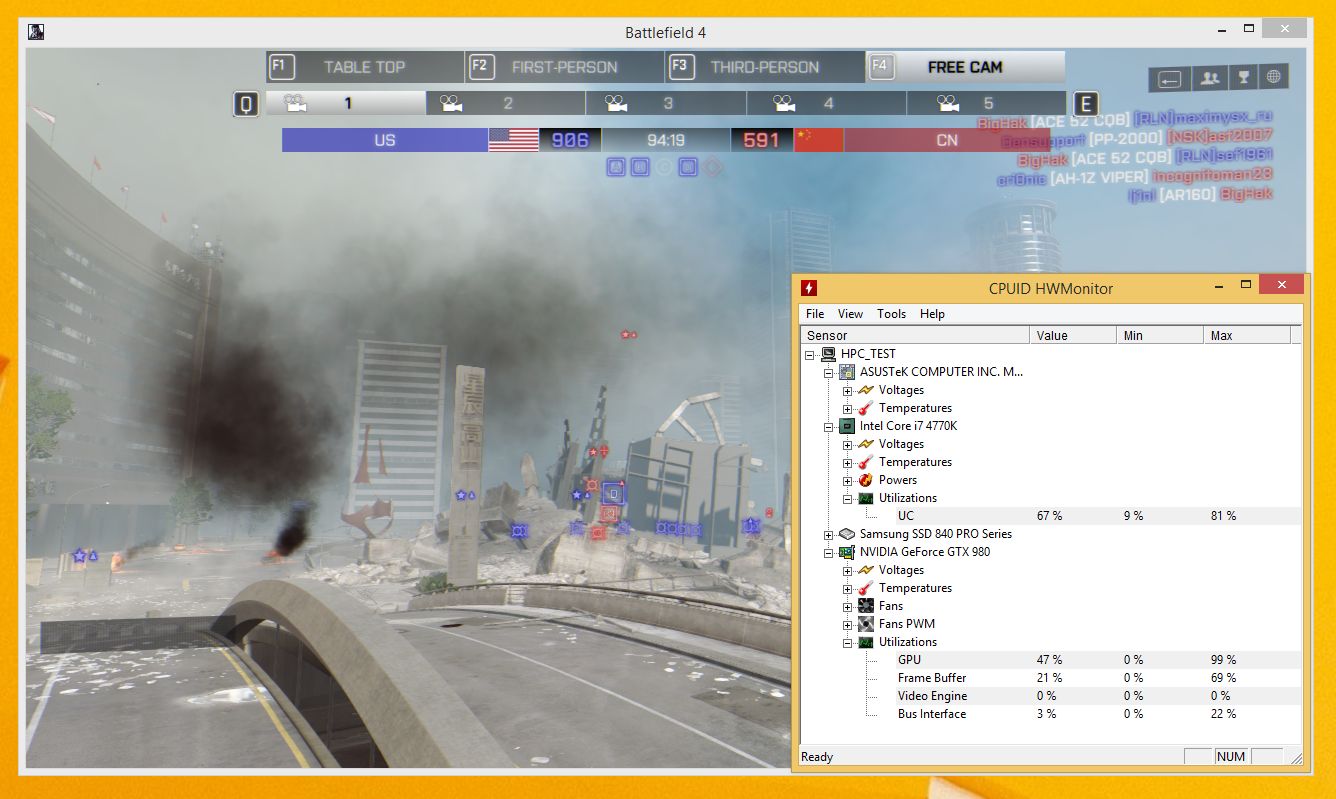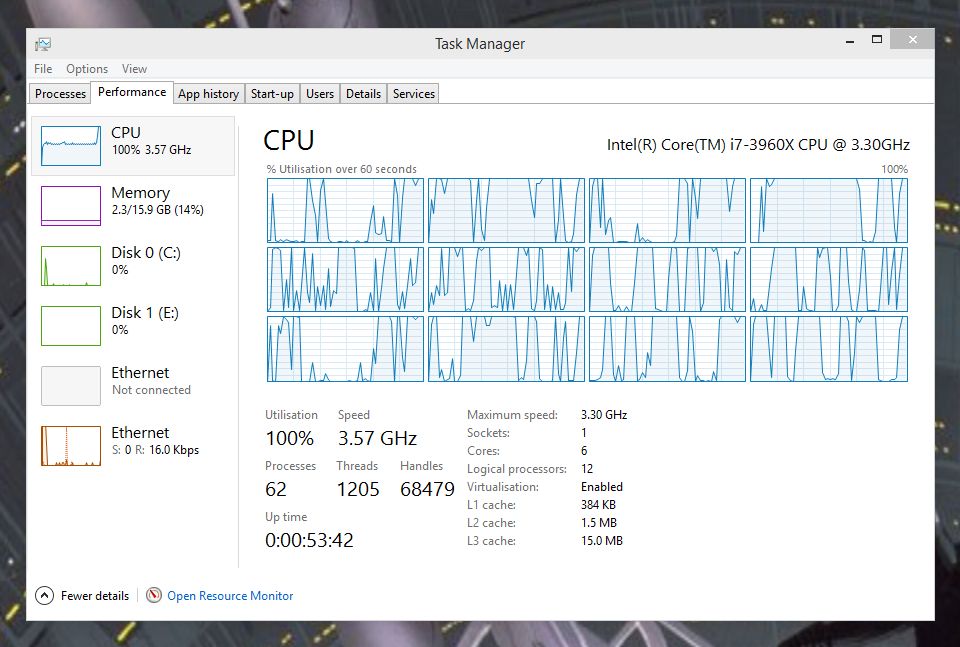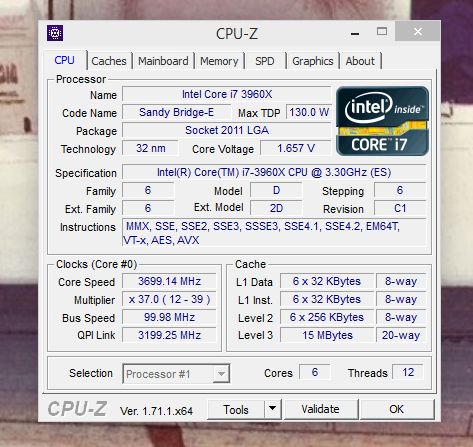How to Know What Cpu You Can Upgrade to

CPU and Motherboard
These 2 vital parts of your PC are inextricably linked and course the footing for your gaming rig. They provide the brains of your machine and the interconnects to let everything else—from GPU to SSD to retention—to really talk to each other.
Just how do y'all know when one or the other needs upgrading? Chances are if your CPU isn't the trouble then your motherboard won't exist either. That goes both ways; if your processor does need upgrading, at that place's a pretty loftier possibility you're going to need to replace your motherboard likewise.
So, does your processor need upgrading? For a lot of modernistic games, your CPU won't be the clogging. Unless you're running at a very low resolution or have an ancient CPU, information technology's going to be the graphics card that'due south putting up roadblocks. AI-intensive strategy games, even so, can put some serious demands on your processor.
The best style to cheque your CPU is to test your system running something from your favorite genre, or a new, demanding game you can use to push your system to its limits.
Identifying a CPU clogging
To get a bead on the usage of both GPU and CPU, download and install an awarding called HWMonitor. It might look a fiddling complicated with all the expanded sections, but click on the minus icon to minimise each of the unwanted data sets until you lot're left with the Utilizations for both your GPU and CPU.

With HWMonitor running, launch your chosen game and become past the menus. Now hitting ALT+ENTER and this should drib you into windowed mode and allow you to encounter the HWMonitor window (depending on the game, yous may need to switch to windowed fashion in the graphics settings). If either your CPU or GPU are running at their 100% maximums, or dangerously close to, then you lot know you've found your bottleneck.
The likely scenario for a modern 3D game is that your GPU will be the one doing the heavy-lifting. If both are running at close to their respective peak load then yous've arguably got a finely balanced system. But if information technology's non running fast enough for your wants and needs, then information technology looks like you'll demand to upgrade both your graphics bill of fare and processor. Expensive…
Time for a new CPU
Let's assume for the moment you've plant your CPU is holding back the functioning of your GPU. So, what do you exercise now? Well, you need to know what specifically is holding back your chip—is it simply too slow, or does it non have the required multi-threading functioning?
With the previous game withal running you tin can have a quick check. If y'all bring up Task Manager (correct-click on the Taskbar and select it) y'all can navigate to the 'Performance' tab and right-click on the CPU graph to 'Display logical processors.' This volition show the load levels beyond your processor's multiple cores and threads. The Windows vii task manager looks a bit different than the Windows eight one below, merely shows you the same information.

This will allow you to see which core/thread is running at the ragged edge. If only a single thread is existence pushed then y'all simply need a speedier scrap. If all the cores are being pushed to their limits, you lot might demand both a faster and a more heavily multi-threaded processor.
What the hell's in my PC?
Another handy application for your upgrade quest is CPU-Z. The free download will give you a full run-downwards of the main components of your machine.
Once downloaded, run the application to see the details of your processor laid bare. This first tab tells you the exact designation of your CPU as well every bit the of import details about its socket compatibility. This is handy to know when looking for the correct upgrade.
The Mainboard tab gives some basic details almost your motherboard, including the chipset and your BIOS version.
Figuring out your adjacent motility will depend on your motherboard.
Identify your motherboard socket
A CPU will only work with certain motherboards. This tin brand upgrading tricky equally a given motherboard will be compatible with a range of dissimilar processors. The key indicator is the CPU socket your electric current processor uses. That volition guide you equally to what processors y'all tin and then drop into your existing motherboard.
Check out CPU-Z to detect out what socket your current CPU is using. Pay particular intendance to notation it down exactly; there is a earth of deviation between an AM3 and an AM3+ socket and the same goes for LGA 1150 and LGA 1155. Processors fitting one socket might physically fit another but certainly won't role.
Once yous're sure of the motherboard socket you're looking to fill, get and take a expect at Newegg (or Scan in the UK). They both allow you to view their choices of CPU by socket so y'all won't be distracted by incompatible shinies y'all sadly can't apply.
Find your current chip in the list and check out the compatible fries listed to a higher place it. With a CPU upgrade you lot're looking for either a major speed-hike in frequency or a boost in the core/thread count. There'south little benefit to shifting from a 2.6GHz dual-core to a 2.8GHz dual-core CPU—the coin you're spending simply wont garner enough extra functioning to get in worthwhile.

If afterwards your research you notice you're already running the summit CPU for your board, then I'thousand afraid your upgrade is a much bigger job—you demand a new socket for a new processor and that means a whole new motherboard.
Rule of thumb: if your organization is more two years old, you'll probably have to upgrade both CPU and motherboard.
Time for a new CPU and motherboard
Replacing your motherboard essentially equates to an virtually entirely new build; everything has to exist removed from your rig, and you lot're likewise likely to accept to go through some activation shenanigans with your existing OS when information technology comes to booting the whole thing back upward again. It's often easiest to support and start with a fresh installation of Windows.
Information technology'due south too a much more expensive process. Having to selection upwards a CPU and motherboard can sometimes double the toll of the upgrade. At that place's also the take a chance you're going to need to pick up some new memory to fit in the new board—memory tech hasn't changed much in the past few years, but nosotros are starting to come across DDR4 coming in.
DDR4 will be dull to supervene upon DDR3 in the more mainstream motherboards we're thinking about, but if you're upgrading a automobile that's more v years one-time you could be looking at the switch from DDR2 to DDR3 memory.
But we'll go to memory upgrades on the adjacent page.
Fourth dimension for a new example?
If you're at the stage where information technology's looking like a new motherboard is going to exist a vital role of your next upgrade then you've got some serious thinking to do. If you're shifting to a whole new motherboard platform information technology could exist fourth dimension to think about simply picking up a whole new system.
If that sounds a little like chucking the baby out with the bathwater, remember there will be parts of your existing organization yous can port over such every bit GPU, hard drive and OS—potentially saving yous some cash on a new rig. Bundling can help cut costs, also. In places like Newegg in the U.s.a. and Browse in the U.k. you lot can take all the compatibility woes out of the equation and buy upgrade kits which include motherboard, CPU, cooler and memory. Information technology'southward all tested together and you tin can be sure such kits will be fully compatible, work out of the box and come with a welcome warranty.
That'due south not necessarily the most cost-constructive fashion of doing such a big upgrade task - you wont take such a wide choice of lath and chip combos - simply it could well exist the simplest.
On the next folio: more memory, or new retentiveness?
Page 1: Introduction
Folio 2: Graphics card
Page three: CPU and motherboard
Page 4: Memory
Page 5: Storage
Page half-dozen: Cooling
Source: https://www.pcgamer.com/the-easy-pc-upgrade-guide/3/
0 Response to "How to Know What Cpu You Can Upgrade to"
Post a Comment